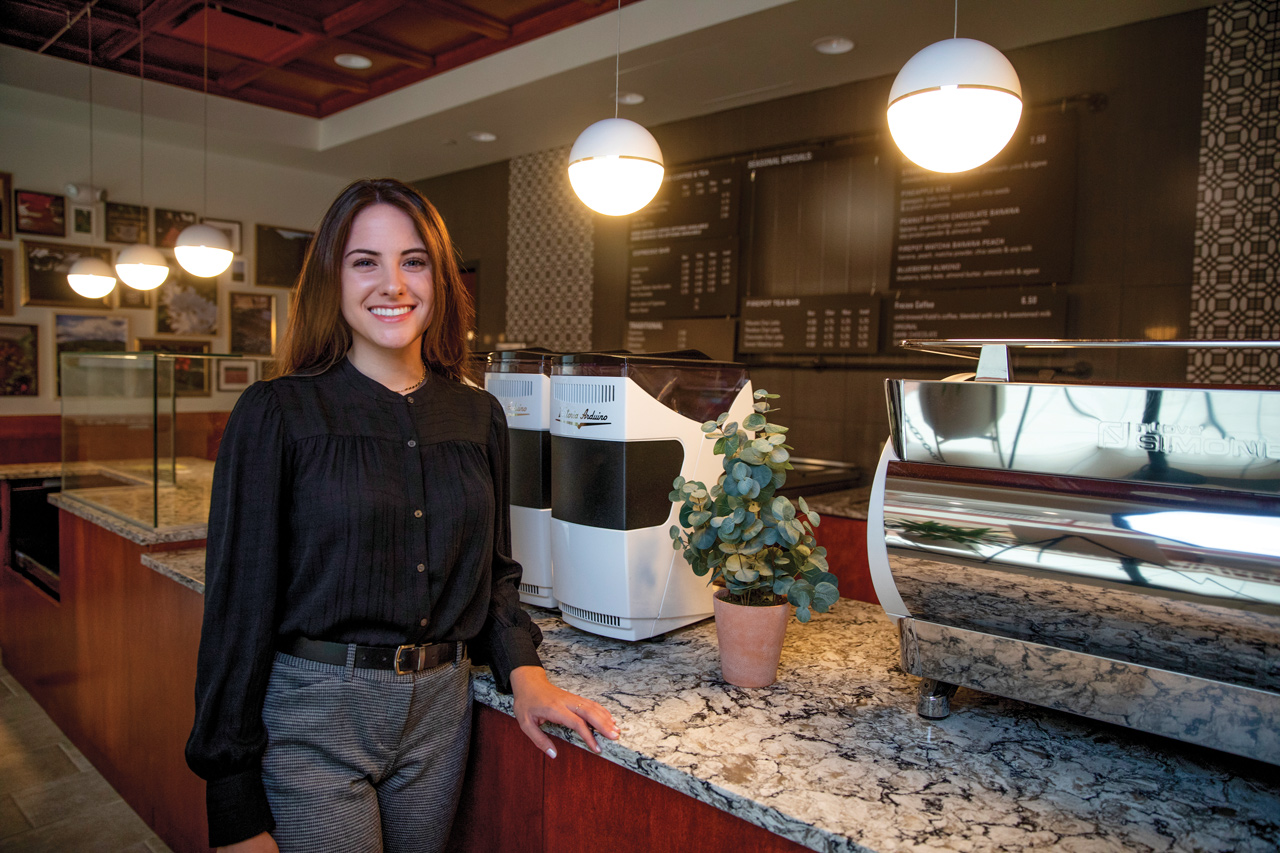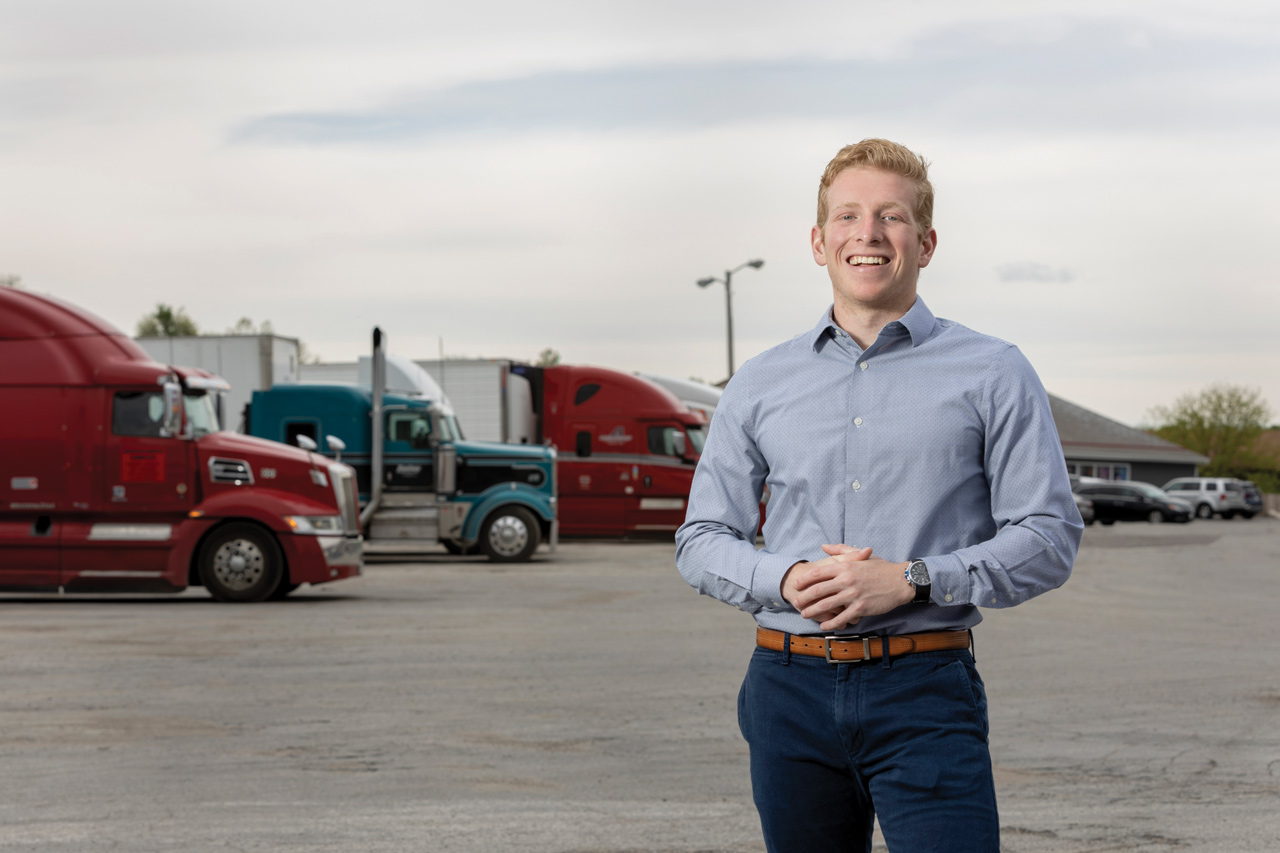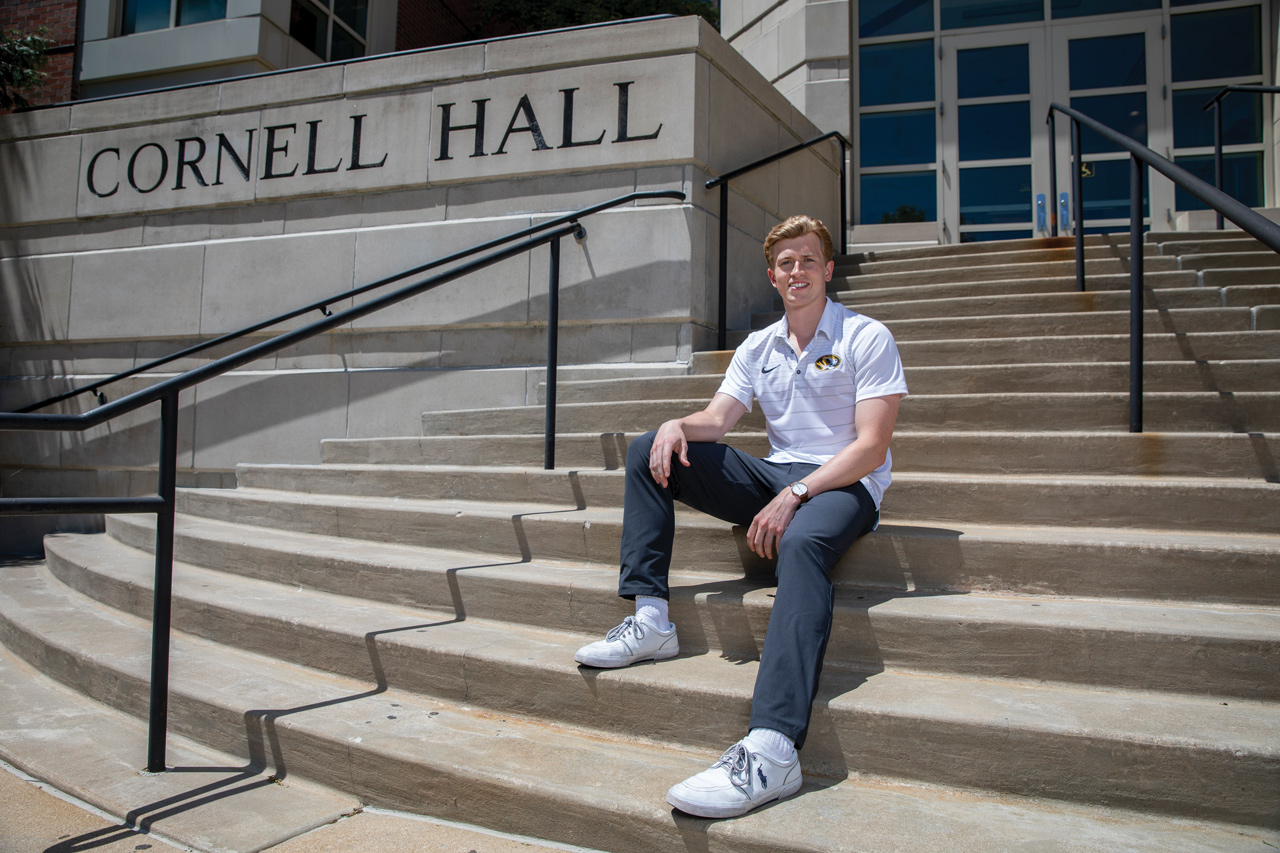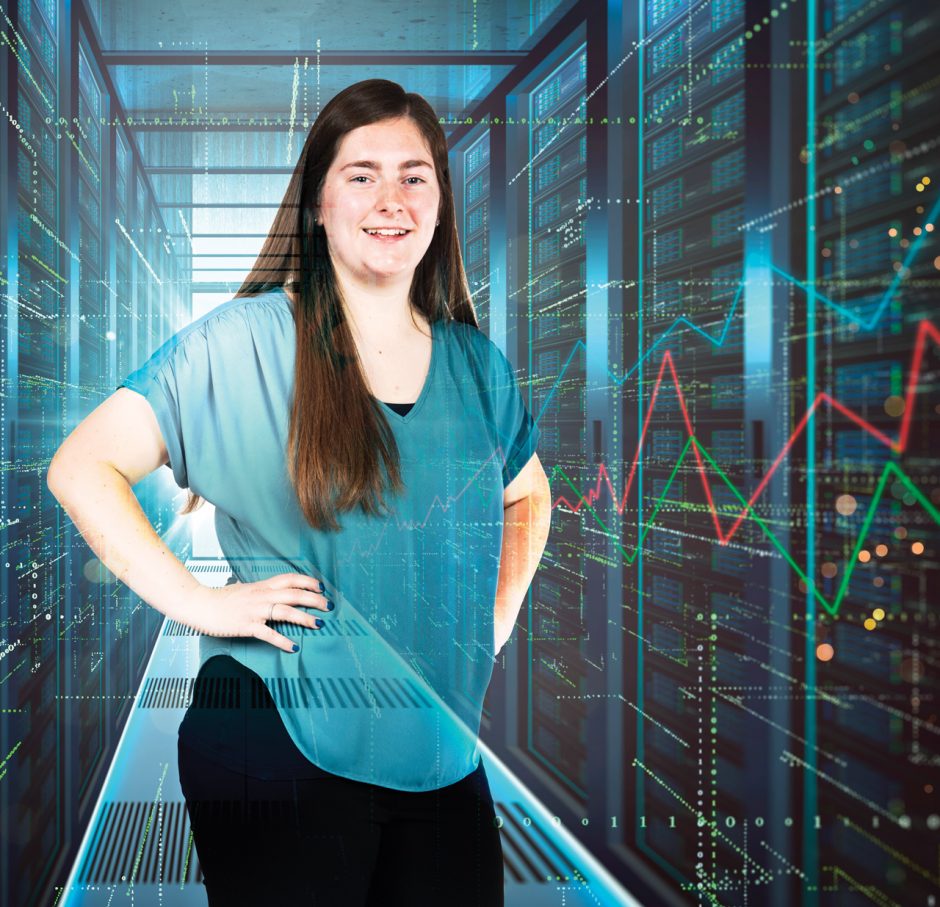Published on Show Me Mizzou August 19, 2021
In 2020, students who would normally work on professional projects with operational businesses in partnership with MU Extension and the MU Office of Service-Learning continued to do so — via Zoom. A student group of mid-Missouri investors kept investing in startup companies, only most pitches were virtual. Student interns swapped terminals in the Inside Sales Lab for home offices while still supporting the work of partner companies. And School of Accountancy Adjunct Teaching Professor Stacy Wright continued using the college’s relationship with Kaldi’s Coffee to create assignments in her course.
“We’re able to audit the contract that the college set up with Kaldi’s and come up with components to check into. Then I can use what the students are seeing to make sure Kaldi’s is complying,” says Wright, who also directs Trulaske’s finance and administration efforts. “It’s not just in a book or a made-up case. The students are having an impact — and they’re really excited about that.”
Here’s a look at five ways Trulaske continued to deliver experiential learning to students across the college this past year.
Cornell’s cafe
When Tricia Zimmer Ferguson, BS BA ’03, was a student at Mizzou, she helped start a program called P.L.A.N. — Planning, Learning and Networking — to pair students with mentors at local businesses. “We wanted more real-life experience in addition to all the great instruction we were receiving from the faculty and advisers,” she recalls. Today, the co-owner of Kaldi’s Coffee with her husband, Josh Ferguson, BS ’03, is leading another experiential learning initiative at the college. In fall 2019, Kaldi’s opened a coffee shop inside Cornell Hall that serves specialty coffee, tea and house-made bakery items to the campus community. It also functions as a classroom where students get an intimate view of the company’s operations, including global supply chain, human resources management and accounting. For example, in Wright’s internal auditing course, student Sabrina Ollis conducted a compliance audit. Part of the contract requires Kaldi’s to work with diverse suppliers, so Ollis worked with a team to set up an audit program that would verify whether at least 51% of the coffee company’s suppliers identify with a marginalized group. “It’s really rare — at least in my experience — to get tangible experience looking at real contracts,” says the accountancy master’s student. “When you’re working with a real company, you know all the lessons that you’re taking from this are applicable to your future. It builds a better experience to explain to future employers and gives me more of an edge going into the workforce.”

Socially distanced selling
Andrew Berger puts on a headset, sits down at his desk — mere inches from his bed — and dials up a trucking company. As an inside sales intern for Agilis System, a GPS software company out of St. Louis, Berger wants to know if the owner is happy with the GPS he’s deployed in his fleet of 15 trucks. Even before COVID moved everything online, inside sales, as opposed to the traditional role of the traveling outside sales representative, was the fastest-growing segment of the profession. And over the past 10 years, Trulaske’s Center for Sales and Customer Development has built a reputation as a training ground for future sales leaders. In 2018, Trulaske launched an Inside Sales Lab initiative. Each semester, 18 students intern at five or more companies where they earn credit while getting paid to assist with the sales process or even close sales themselves. Before the pandemic, several students worked simultaneously in the lab, which features nine terminals on the third floor of Cornell Hall. Now, students take turns being in the lab, based on a daily schedule. “In the first week, I got to meet with the VP of sales, district managers, account executives and customer service representatives. I was doing live role-plays with their sales team,” Berger says. “A large piece of it is collaboration and receiving constructive criticism and just getting better. It’s more of an experience that you critically think about and learn from rather than just a part-time job.”

A new generation of angel investors
Not many 21-year-olds have sat across the table from the founders of a company while the CEO tries to impress them. But Carson Lujin and the 19 other students who manage the Allen Angel Capital Education (AACE) venture fund have had that powerful position. Through a hands-on course, students get the opportunity to learn angel and venture capital investment strategies by investing in high-growth startup companies. They cultivate deal flow, conduct due diligence, structure and negotiate investment contracts, monitor portfolio holdings, and invest capital to ultimately drive financial returns for the fund. “We’re really operating like a real-life venture capital firm,” says Lujin, who is pursuing a master’s degree in accountancy and a bachelor’s in economics. Since its inception in 2010, the AACE venture fund has invested in 12 companies, including Elemental Enzymes, a biotech company founded by Mizzou alumni Brian, MS ’08, and Katie Thompson, BS ’04, PhD ’11. The initial $30,000 the fund invested had increased to $250,000 when the group partially exited the business in 2018. Students leverage these experiences to land highly competitive jobs at J.P. Morgan, Blackstone, Goldman Sachs, Boston Consulting Group and others. “People are pretty amazed by the opportunity,” Lujin says. “Even Ivy League students sometimes aren’t exposed to experiences such as this.”


An Edge Over the Competition
In rural Bollinger County, Missouri, 4 out of 5 residents don’t have broadband — aka high-speed internet access that city dwellers take for granted when they order groceries, attend school or work from home. In response, the University of Missouri System Broadband Initiative launched a pilot plan to bring affordable and accessible broadband internet to rural parts of the state. But the county needed help developing strategies to educate the public on why internet access should be a utility, not a luxury. So, this past semester, a group of students in the Trulaske Edge program worked with Bollinger County to develop these strategies. They researched customer segments, developed targeted marketing proposals and presented recommendations. “This class pushed me out of my comfort zone,” says Sidnee Brumagin, a senior business administration transfer student from Moberly Area Community College. “I’m not a marketing major, so I had to step out on my own and learn some of those methods. And we’re learning how to handle working with clients like we would in the workforce.” That’s the goal of the Trulaske Edge program — four business administration courses plus workshops where students develop professional competencies and build skills beyond the classroom. Participation in the program is required for graduation. Since students started working with businesses on professional projects in fall 2019, they have completed more than 222 projects in about 25 Missouri counties in partnership with MU Extension and the MU Office of Service-Learning. Lauren Brengarth, BJ ’03, MA ’04, PhD ’11, an assistant teaching professor in the Trulaske Edge program, says it’s responsible for an increase in student placement, with job rates exceeding 90% after graduation.
The Lab of the Future
In the new emerging-technologies lab in Cornell Hall, which opens this fall semester, business students aren’t simply learning from professors. They’re collaborating with students and teachers across campus to co-create the future. Powered by 5G+ technology from industry partner AT&T, the lab offers students opportunities to explore new ways to make safer transportation, remote health care, precision agriculture and digitized logistics a reality. And those are just a few examples. This fall, the lab will host six interdisciplinary courses, each discovering solutions that can change how the world does business. “Our cross-disciplinary teams can take on real-world problems and provide real suggestions,” says Trulaske Dean Ajay Vinzé. Read more about the lab and his vision for business education here.
To read more articles like this, become a Mizzou Alumni Association member and receive MIZZOU magazine in your mailbox. Click here to join.



